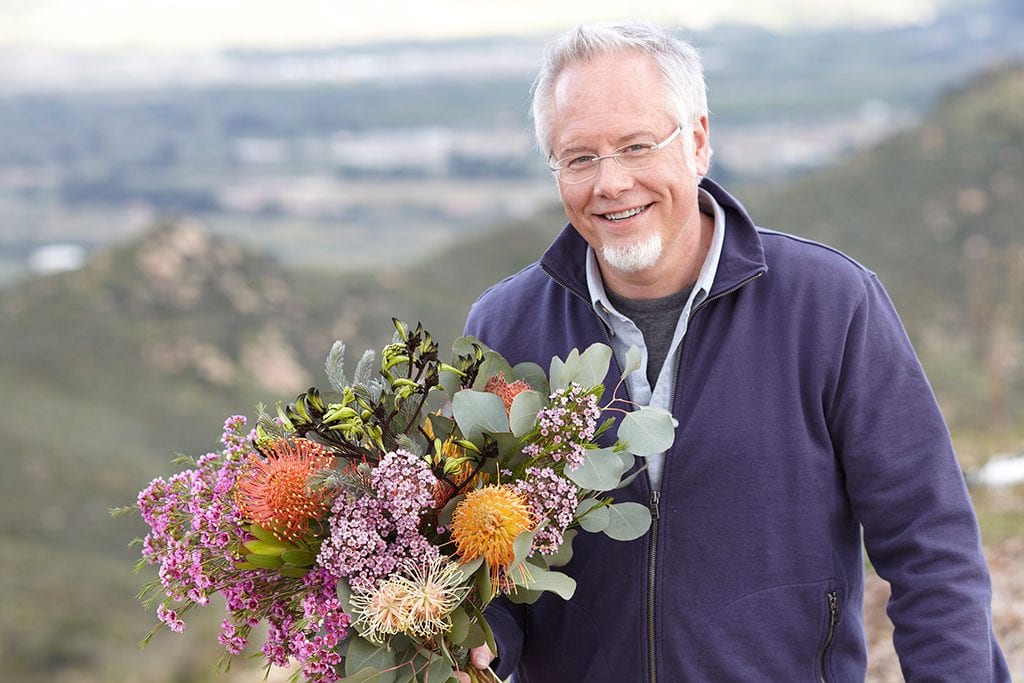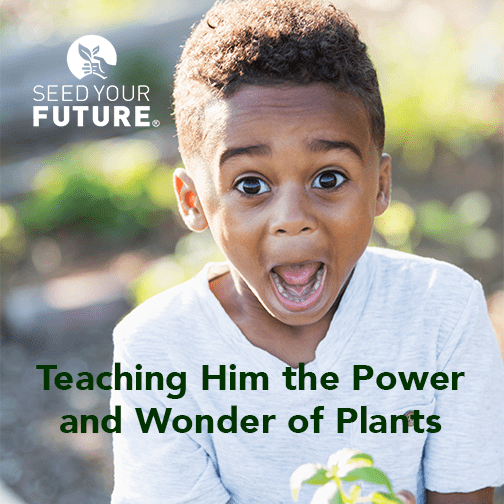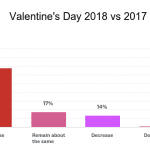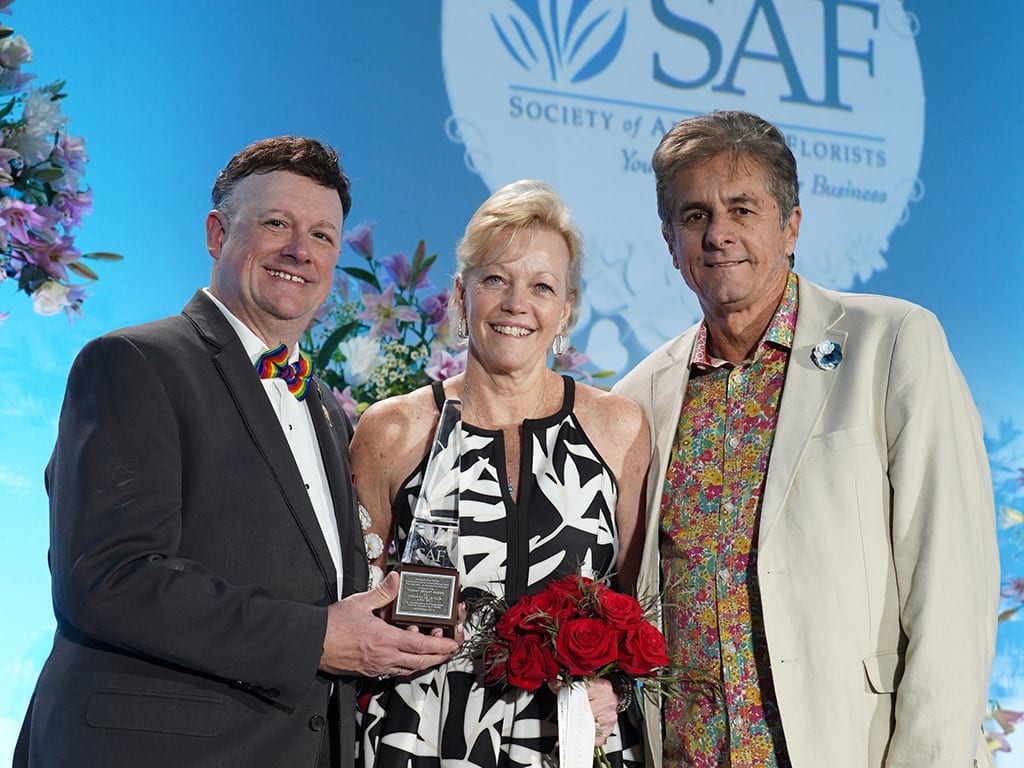
J Schwanke, AAF, AIFD, PFCI, CEO of uBloom.com and host of “J Schwanke’s Life in Bloom” on American public television, has more than 1,800 instructional videos through his company, J Schwanke Productions, that he is making available for educators. (Photo courtesy of UBloom.com.)
Remote learning has emerged as one of the biggest challenges of the coronavirus pandemic. To ease the burden for teachers, parents and students, one of the industry’s most esteemed educators and a nonprofit focused on fostering a lifelong love of plants and flowers have made available a plethora of free videos to engage young minds.
J Schwanke, AAF, AIFD, PFCI, CEO of uBloom.com and host of “J Schwanke’s Life in Bloom” on American public television, has more than 1,800 instructional videos through his company, J Schwanke Productions, that he is making available for educators to make their jobs a little easier and to inspire what he hopes will be future generations of floral professionals and flower enthusiasts.
“Education is paramount,” said Schwanke, who won Floral Management’s Marketer of the Year Award in 2019 for spreading awareness and appreciation of flowers (and the people who grow, distribute, design and sell them) to millions of Americans. In 2010, he received the Society of American Florists’ Tommy Bright Award, recognizing his lifetime achievement in education.
In March, Schwanke connected Eric Birkenberger, an agriculture science and technology teacher in Harwinton, Connecticut, who asked for help coming up with material for his classes when they suddenly went virtual. Together they developed a program for other floral educators.

Seed Your Future has resources for educators and community members to use that are aimed at inspiring young people to fall in love with plants and flowers. (Photo courtesy Seed Your Future.)
Educators will have access to Schwanke’s robust video library with a complimentary uBloom membership. To take advantage of this offer, email j@ubloom.com with the subject line “flower education request.” In the message, include the following:
- Name and affiliated school
- City, state, country and ZIP code
- Estimated number of students or classes you will be teaching
After verifying information, Schwanke will send an email with information for setting up a free uBloom account.
Seed Your Future, a nonprofit founded in 2014 to increase public awareness of the positive attributes of horticulture and to get future generations to view it as a vital, viable and vibrant career path, partners with Scholastic to produce educational resources about plants and flowers, free and accessible to anyone.
“Before we created anything, we spent a couple years researching to discover gaps in current horticultural education,” said Executive Director Susan E. Yoder. “We came up with plant-based lesson plans to support what they’re required to teach.”
The first wave of materials, geared for middle schoolers, is called BLOOM! Seed Your Future started with this demographic to get them excited about plants. “It’s hard to start a conversation about a career in horticulture if they don’t know anything about plants,” Yoder said. “Once you have their interest, then you can say, ‘hey, here are 140 different ways you could work in this field.’”
While BLOOM! includes a variety of resources, including posters, lesson plans and activity ideas, its most popular feature since March has been its online learning module, featuring videos, a trivia game, matching game and dissection tool to teach key elements and functions of plants. “That’s been so heavily utilized not just for educators, but for parents,” Yoder said. “They are so thirsty for content that engages their kids, while also educating them.”
Some of the most popular content has been ideas for easy DIY projects, such as “use plants to dye your own clothes” or “how to make hand sanitizer with aloe” and recipes.
When communities began locking down in March, the Seed Your Future team reviewed its materials to evaluate how “virtual-learning-friendly” they were. For instance, a family plant hunt, typically conducted in a park or neighborhood, became a home-based activity. “At the time, people were afraid to go outside, so we tweaked it to have them focus on identifying things around the house made from plants, such as a wood coffee table or a cotton t-shirt,” Yoder said. “We just wanted them to see that plants are in things they see every day.”
While the pandemic has unleashed many hardships, there has been a surprising “green-lining,” Yoder said. “There’s data all across the country that people are reconnecting with plants. They’re gardening, they’re picking out house plants and buying flowers. People are finding such solace and calm from plants,” she said. “If we don’t capitalize on this trend, will it still exist when this pandemic has passed? Our hope is that our movement will keep the plant-appreciation going.”
Katie Vincent is the senior contributing writer and editor for the Society of American Florists.





